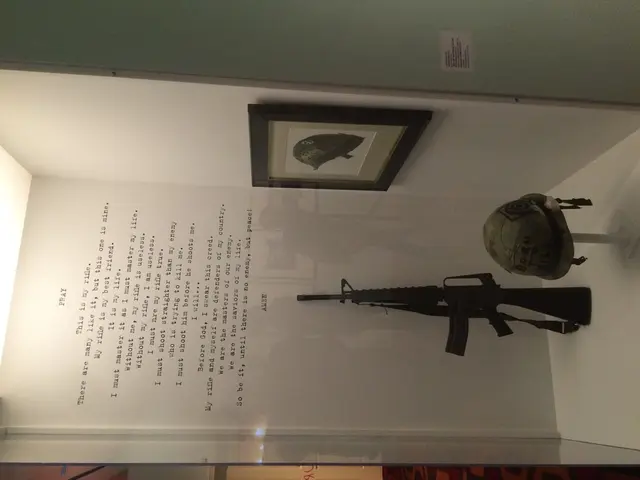Manfred Smolka perished 65 years ago.
A Tragic Tale of Injustice: The Manfred Smolka Case
Manfred Smolka, a native of Upper Silesia, born in 1930, lived a life marked by political turmoil. His story, unfortunately, ended in tragedy.
Smolka joined the People's Police after completing officer training and became a member of the SED in 1948. However, his life took a drastic turn in August 1959 when he was ambushed and shot by a "State Security" assassination squad near the inner German border. The specific location of the incident remains unknown.
Smolka's trial began before his death, and he withdrew his forced confession of working for West German intelligence services. Despite his protestations, he was dismissed from the border troops and later expelled from the SED. Manfred Smolka was executed by guillotine in Leipzig on July 12, 1960. His farewell letter, written before his execution, was suppressed and never delivered to his widow, Waltraud Smolka.
Waltraud Smolka, in her search for answers, inquired about her husband's whereabouts in December 1964, but did not receive a response for eight months. It was only five years after her husband's death that she received a death certificate, listing the cause of death as "heart attack."
Meanwhile, Waltraud Smolka, along with her daughter, filed a criminal complaint against Erich Honecker for manslaughter and abuse of power in 1990. However, the case was delayed until Honecker left for Chile in 1993.
In 1992, Klaus Schmude published a book about Manfred Smolka's case, shedding light on the injustices that took place. In 1998, Waltraud Smolka sued the PDS, the successor party to the SED, for damages, but was unsuccessful.
A memorial stone for Manfred Smolka was unveiled in Titschendorf, where he lived with his wife and daughter, in 2017. Smolka's minor daughter was raised by her grandparents.
Erich Mielke, the Minister for State Security, sent a circular six days after Smolka's execution, urging employees to "hate treason" and work on overcoming political and moral deficiencies.
Smolka's story is a poignant reminder of the injustices that took place during the Cold War era. His case, though tragic, serves as a beacon of truth and a call for accountability.
Read also:
- Peptide YY (PYY): Exploring its Role in Appetite Suppression, Intestinal Health, and Cognitive Links
- Easing Pedestrian Traffic Signal Pressure
- Astral Lore and Celestial Arrangements: Defining Terms & In-Depth Insights - Historical Accounts & Glossary of Cosmic Mythology
- ICE directed to enhance detention conditions following NYC immigrants' allegations of maltreatment








